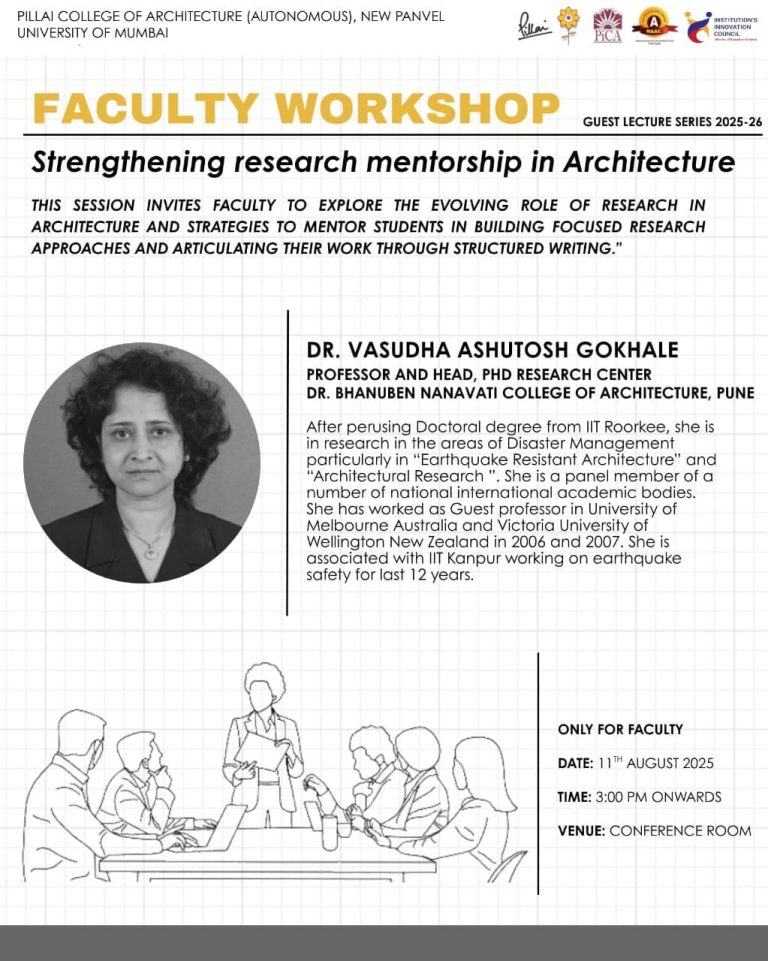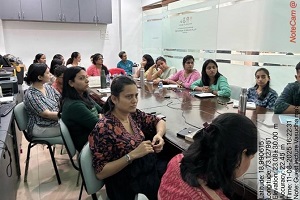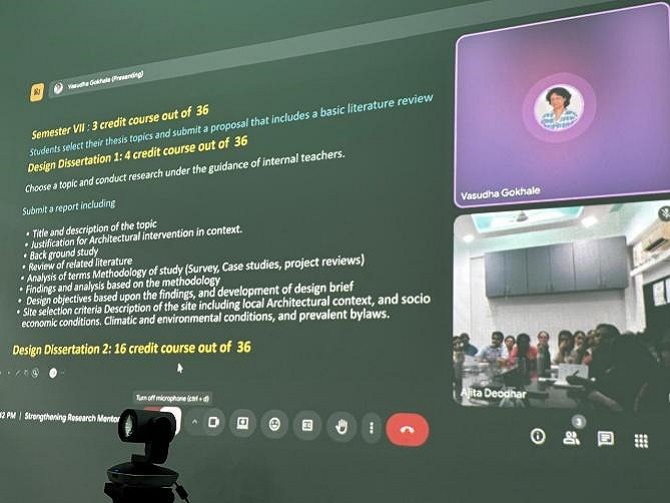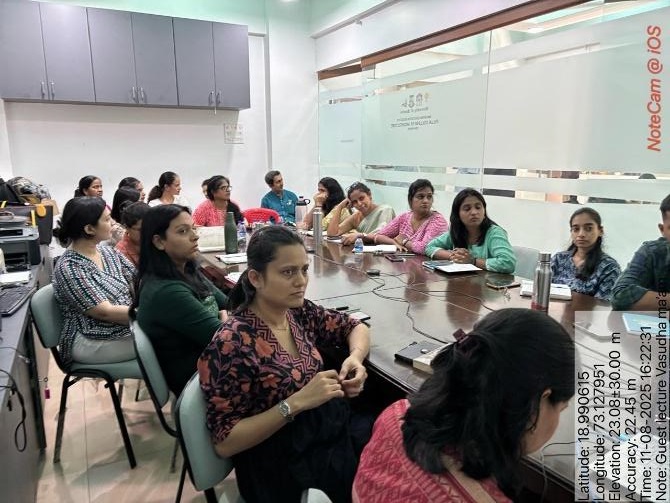| Subject | Design Dissertation |
| Year | 2025-26 |
| Session | I |
| Date | 11th August 2025 |
| Time | 3:00 p.m. - 4:30 p.m. |
| Venue | Conference Room (Via Google Meet) |
| Faculty Co-ordinator | Prof. Ajita Deodhar |
| Attendees | PiCA Faculty members |
| Guest Speaker | Dr. Vasudha Gokhale |
A Faculty Development Session titled “Strengthening Research Mentorship in Architecture” was conducted by Dr Vasudha Gokhale on 11th August 2025. The session was organised to help faculty strengthen their approach to mentoring students during the research phase of the B.Arch Design Dissertation.
Prof. Ajita Deodhar introduced Dr. Vasudha Gokhale, highlighting her extensive academic and research experience, and outlined the intent of the session—to explore evolving research approaches in architecture and ways to mentor students in developing focused research and structured writing.
Dr. Vasudha Gokhale holds a Doctoral degree from IIT Roorkee and is a leading researcher in Disaster Management, focusing on Earthquake Resistant Architecture and Architectural Research. A gold medalist in both B.Arch and M.Arch, she has received several awards, including the MASA Best Teacher Award and the Maharshi Karve Award for Excellence. She has served as a guest professor at the University of Melbourne and Victoria University of Wellington and has worked with IIT Kanpur on earthquake safety for over a decade. With more than 135 publications and active roles in several academic bodies, she currently heads the PhD Research Centre under SP Pune University, guiding multiple doctoral scholars.
Dr. Vasudha Gokhale began by explaining the integral relationship between research and design in architectural education. Through examples from her own students’ dissertations, she demonstrated how varied topics—ranging from a mental health facility in Pune and multi-hazard residential development in Mumbai, to an Olympic Village and the Godavari Riverfront development—can evolve from research-led processes. Each example reflected a distinct approach, from conceptual and theoretical explorations to technical and contextual inquiries.
She shared that she had studied the existing Design Dissertation syllabus followed at PiCA, and offered valuable observations on stages that could be strengthened or added to the process. She also discussed how students can be guided to apply their research in the design process, emphasising the importance of establishing a strong research base early in the semester.
The discussion extended to different approaches to mentoring, building a studio culture that encourages peer discussions, and helping students move from theoretical to technical research. Dr. Gokhale presented a set of ten typological directions for dissertation topics, suggesting that these could be introduced as reference frameworks at the beginning of Semester 7.
The session concluded with an engaging Q&A where several faculty members shared their perspectives and questions. The discussion covered diverse points such as developing design-led outcomes from research, mentoring community-focused projects, strengthening report writing, and the use of AI tools in academic research. Dr. Gokhale encouraged the faculty to adapt to emerging technologies and guide students towards their appropriate use. She also emphasised that the dissertation should not be seen merely as a research paper, but as a project report that reflects both investigation and application.
Principal Dr. Sudnya Mahimkar offered closing remarks and thanked the speaker for the insightful and interactive session, expressing appreciation for the clarity and depth with which Dr. Vasudha Gokhale addressed the topic. She acknowledged the relevance of the session in strengthening faculty approaches to mentoring diverse dissertation topics. The session was well received, and faculty members shared that the insights would meaningfully inform and enhance their future mentoring practices.




